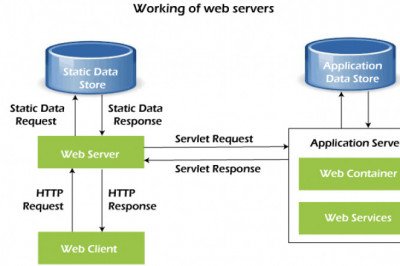
views
Every business is utilizing artificial intelligence (AI) to get a competitive edge in the contemporary digital world. The expansion and development of AI over time has had a substantial impact on the majority of technical professions, including those in the insurance sector. Insurers may use machine learning, data modeling, and predictive analytics with artificial intelligence (AI) to reduce the overall cost of insurance, which will result in reduced premiums and more customer satisfaction. Continue reading to learn how AI will affect the insurance industry, which already heavily relies on digital technologies.
Artificial intelligence meets insurers
AI has only been scratching the surface in the insurance industry. There are multiple processes that can be significantly improved using AI, with the potential for many insurance providers to implement the technology across their businesses over time. Some of the most beneficial applications of AI include pricing, claims handling and fraud detection.
Pricing is one of the most promising applications of AI in the insurance sector. Insurance providers may employ AI to tailor each customer's coverage and present more affordable premiums. In order to establish rates based on specified criteria, a house insurance company, for instance, might use AI to gather data on a person's location, marital status, and chance of making a claim.
Related Article: IOS app development company in Vancouver
Claim handling costs insurance companies a significant amount of money, and premiums are usually raised to cover the cost of settling legal disputes. By automating many of the time-consuming claims handling and payment processes, an insurance firm may lower its labor expenses. It is possible to speed up the processing of claims from days to hours or even minutes. Additionally, it would enable insurers to provide clients better contracts that are tailored to their particular situation.
Fraud detection: The insurance industry loses $40 billion annually to fraud, and to make matters worse, the industry is moving totally online. However, using AI to detect fraud and lower risk is a very successful tactic. Insurance companies can identify clients who intentionally provide false information to get a lower premium or a greater payout by looking for anomalies in claims data.
Writing well: Information analysis by AI scores for human evaluations when the amount of data is large. With AI systems, the underwriter can focus on the process and logic of portfolio management rather than manual data analysis. AI’s algorithms can perform complex typing tasks efficiently. Sometimes, a combination of AI is used to achieve a formidable underwriting scheme.
Related Article: Iphone application development in Virginia
Reducing Fraud: Identity theft fraud is common in the insurance industry. AI has the ability to identify loopholes that leave the application process vulnerable to fraud. Machine learning algorithms can scan through historical data and determine if anything is out of place. Some patterns can be specified, resulting in a warning of fraudulent activity. It’s unrealistic to expect such powerful analysis from the human eye alone, but the human eye coupled with AI can work wonders.
Trust Building: Ultimately, what policyholders want is a faster claims process. The performance of the insurance company will be judged by the customer after payment has been made. The time taken to settle claims is one of the most important metrics on which a customer rates an insurance company, ease of payment being the most important.
Trust plays a vital role in any insurance policy. AI should inspire confidence in current and future police officers. Policyholders should not see the development of AI as a sufficient tool to exclude policyholders from honest claim reimbursement; they should see it as a conduit to it.
The Function of AI in the Insurance Sector
In 2017, Artificial Intelligence is proving its product in a variety of business verticals by rapidly creating controlled, digitally optimized environments for automated productivity.
Investments in AI-powered technology, which can not only automate executive-level work planning but also improve customer service by assisting agents in making judgments with accuracy and unquestionable judgment, appear to be particularly advantageous for Future of AI in the Insurance Industry.
A symbol of AI-enabled innovation and solutions
Insurance companies, as of today, face 3 major challenges:
Real-time access to prospective customers.
Provide appropriate products tailored to customer needs.
Fastest claim support for loyal customers and rejection of false claims.
Insurance companies strive for a technology strategy that helps keep all of their employees connected. These employees vary from agents, brokers, claim investigators to market and support teams. This group of employees coupled with unhelpful practices creates layers of confusion in the Insurance ecosystem.
To make the process more streamlined and effective, they must choose robust and integrated AI-enabled solutions that can penetrate layers of confusion and elevate a clear value proposition for customers.
Author: I’m Anita Basa, a fascinating Technical Content writer currently working at USM Business Systems. Interested to know about technology updates. Mobile App Development, IoT, Artificial Intelligence, Machine Learning, IOS, and Technology-related content Get connected with me on Linkedin












Comments
0 comment